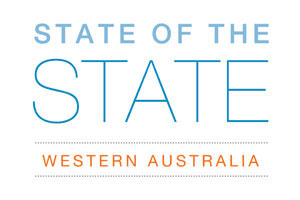Explore our Climate and Energy Hub
31/05/2012
 |
|
The State Government must continue to spend on critical infrastructure and skills programs if the State is to reap the benefits of the mining boom and growth in Asian economies, SA Premier Jay Weatherill told a CEDA audience in Adelaide.
Mr Weatherill spoke about the SA Government's recent announced of a $194 million initiative to make courses free in priority areas of skills shortages like science, technology, engineering and maths.
The Government will also invest $10.8 billion in infrastructure to support the mining boom over the next four years - despite a dramatic decline in expected revenues, down $2.8 billion on previous estimates.
In the face of doomsday predictions about consequences of a drop in the State's credit rating, Mr Weatherill said the Government had invested in geosciences surveying in an area near Woomera, which is estimated to sit on around $35 billion in resources.
"We don't believe this is a time to sit on our hands waiting for things to get better and in fact this is precisely the time we need to seize the opportunities ahead of us," he said.
The SA Government will continue its push to promote a high value manufacturing sector and a range of measures to make SA attractive for high-skilled workers, he said.
The mining boom represented a "great labour project" to engage the long-term unemployed, with industry and Government working together to expand workforce participation. Ensuring citizens benefit from the mining boom will help to allay fears about "the Asian Century" potentially taking local jobs, he said.
Advanced Manufacturing
Minister for Employment, Higher Education and Skills, Science and Information Technology, Recreation and Sport, Tom Kenyon said the SA Government will focus on re-skilling long-term unemployed workers and disengaged young people to meet the needs of the emerging mining boom and advanced manufacturing.
Mr Kenyon said that the State's historically low unemployment figure of five per cent glosses over "those left behind" - the 40,000 unemployed and another 250,000 people not participating in the workforce.
"Without this five per cent in the workforce we can't continue to advance and prosper," he said.
Programs are being funded to re-engage the disengaged workforce including a $194 million scheme to make some literacy and numeracy, foundation and TAFE courses free, and a program to subsidise between 50-90 per cent of the cost of workforce training courses for businesses.
Holden, Executive Director Manufacturing, Richard Phillips said South Australia's manufacturing industry is being transformed by lean manufacturing processes. Manufacturers need to "punch above their weight" and focus on high value added activities that cannot be easily replicated by low wage producers in Asia, he said.
Sage Automation, CEO, Adrian Fahey said that in today's competitive environment it is important for manufacturers to be innovative, to embrace change and collaborate both in technology and knowledge.
The Mining Super Cycle
Minister for Manufacturing, Innovation and Trade, Mineral Resources and Energy and Small Business, Tom Koutsantonis said SA is seeing "a good old fashioned gold rush" but in other resources.
Minerals production had increased from $2.3 billion in 2009-10 to $4.96 billion in 2010-11 and resource exploration over the past 12 months had reached $223.7 million -up 48.8 per cent to the highest level since the Global Financial Crisis, he said.
SA is expected to gain from producing shale gas as the eastern states switch from coal seam gas. "BP have spent $1.5 billion to dig four holes in the Cooper Basin... if they find what they think they are going to find, which is not a few oil and gas reserves but a new region, I think you are going to see SA is a different place," Mr Koutsantonis said.
Centrex Minerals, Managing Director, Jim White said the Eyre Peninsula offers an important contribution to the mining boom, as it has existing social infrastructure and is connected to the electricity grid. However, the electricity grid would need upgrading and a deep water port to be built.
China recognises that SA is an attractive place to process as well as mine, which would broaden our skills base, he said.
Affordable Living
Minister for Communities and Social Inclusion, Social Housing, Disabilities, Youth and Volunteers, Ian Hunter said SA must remain an affordable place to live if the "community is to feel it is getting the benefits of the mining boom". Research had found more equal societies almost always do better than those with inequalities, he said.
Although average incomes have outstripped the average cost of living over the past 20 years, many people feel they are getting left behind, he said.
"When people feel that some people are doing it much better than others and the burdens are not being shared across society, you will end up with a sense that the rising burden of costs is being shifted downwards," Mr Hunter said.
KPMG, Chairman of Partners, Con Tragakis said housing affordability is not just a social issue, it's also a fundamental and business issue and that governments need to work with the community to find solutions.
Governments will need to focus on innovative ways to encourage investment in affordable and energy efficient housing that is close to transport and on reducing the regulatory costs of housing development, he said.
